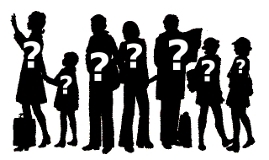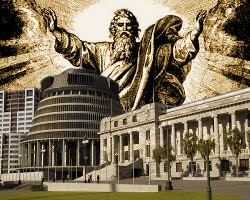Should religious people keep their divisive beliefs away from policies about marriage?
The green activists got up in arms about the introduction of genetically modified plants into the New Zealand market. But there is, as far as I can see, no widely lampooned caricature of people with environmental concerns as being socially divisive – in spite of those among their number who vandalised the farms of people suspected by them of having genetically modified crops. Large numbers of parents (the clear majority of those who voiced their opinion, in fact) raised their voices in protest when the government threatened to criminalise all use of any force in disciplining a child, while offering the benevolent promise that not all such criminals would be prosecuted (guess which way I lean on that). Parents were ignored and the law was changed, but more importantly here, nobody now thinks of parents as a uniquely divisive group within society. Many other people with common concerns or causes have likewise raised their voice in unison over other issues that concern them, but the fact that groups who do this in general do not get singled out as divisive or polarising is demonstrated by the way that just which groups spoke out over what issue is the kind of thing that tends to fade into obscurity in a relatively short time. But religion? Oh, that is different.


 In the Nuts and Bolts series I lay out some of the basic concepts thrown around in my areas of interest – philosophy, theology and biblical studies – and explain them for those unfamiliar with them.
In the Nuts and Bolts series I lay out some of the basic concepts thrown around in my areas of interest – philosophy, theology and biblical studies – and explain them for those unfamiliar with them. When I was at the University of Canterbury in July I gave two talks. Episode 29 was one of those talks, on abortion. This talk was actually based on the same material that served as the basis for episode 3, so there will be obvious similarities.
When I was at the University of Canterbury in July I gave two talks. Episode 29 was one of those talks, on abortion. This talk was actually based on the same material that served as the basis for episode 3, so there will be obvious similarities. Here’s Episode 8, in which I discuss whether a truly secular version of political liberalism can really embrace a proper liberal doctrine of equality. I argue that it cannot.
Here’s Episode 8, in which I discuss whether a truly secular version of political liberalism can really embrace a proper liberal doctrine of equality. I argue that it cannot.